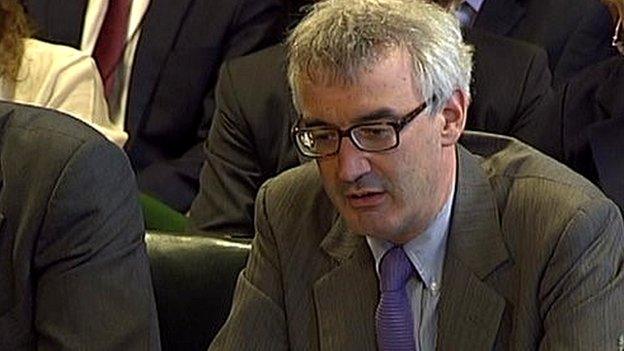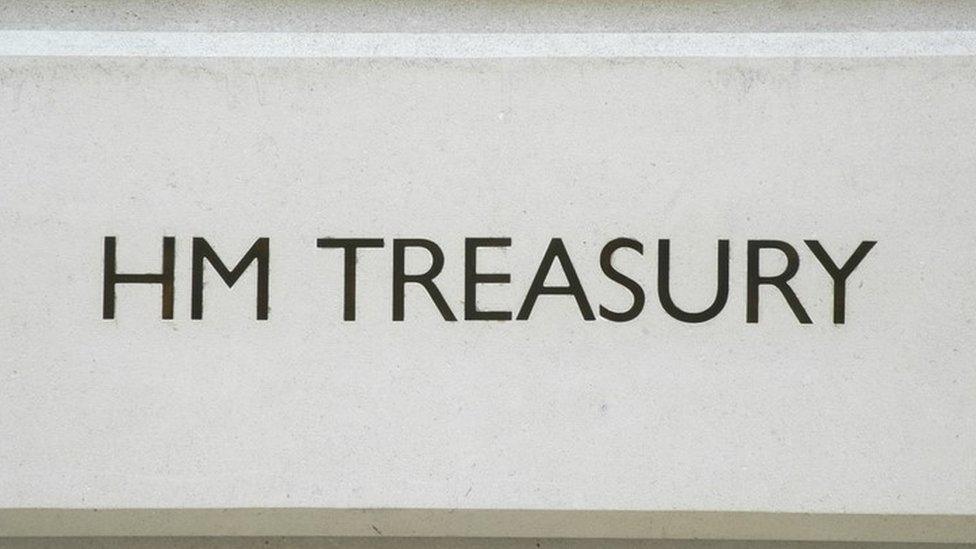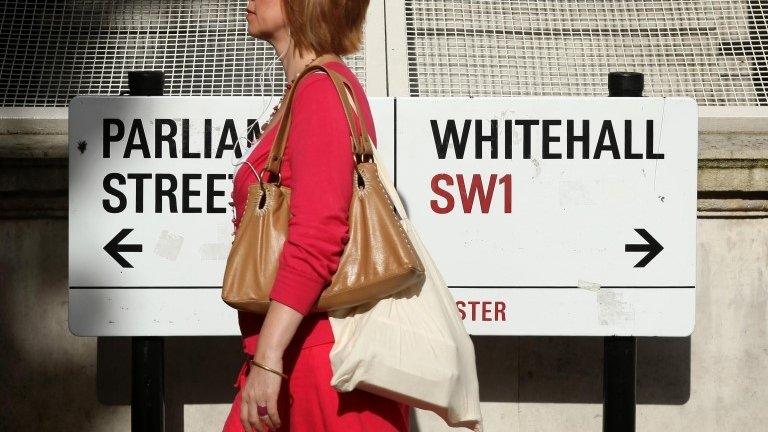Scottish independence 'opportunity' says 2014 critic
- Published

Sir Nicholas Macpherson made the case for Scotland to vote No in 2014
Supporters of Scottish independence now have a "golden opportunity" to re-cast their economic case in the wake of the Brexit vote, according to one of the most senior critics of the 2014 plans.
Sir Nicholas Macpherson has proposed a separate Scottish currency.
He also suggested that a big shift in tax and spending would probably require low taxes and a smaller, more efficient state sector.
Sir Nicholas was the top civil servant at the Treasury in Whitehall.
In that role, he took the unprecedented step two years ago of publicising his advice to ministers about the risks of the UK breaking up.
He is now an academic at King's College London, and writing in the Financial Times, external, he set out ways in which the case for independence within the European Union could now be significantly stronger.
Sir Nicholas argued that supporters of independence should plan for a separate Scottish currency with a central bank to back it up.
Over time, that could lead to convergence with the euro currency, though the experience of Sweden shows that could be avoided.
He repeated his view from 2014 that the Treasury would not have done a deal on sharing control over sterling with an independent administration at Holyrood.
'Over-optimistic'
But he said an independent Scotland in Europe would "have no interest in seeking to tie its currency to a country that wishes to put more distance between itself and the EU".
Other economists have warned of the problem facing an independent Scotland if it broke away from use of sterling currency, given that it sells far more into the English, Welsh and Northern Irish markets than it does to the rest of the world.
The former Treasury mandarin suggested an independent Scotland could poach financial services work from London, though it might lose the headquarters of the Royal Bank of Scotland. That would mean a reduced state exposure to the risks carried by RBS.
Sir Nicholas repeated his warnings of the 2014 independence plans being over-optimistic about tax revenue, particularly from oil production.
But he said the work is being done to build credibility for the Scottish government's financial management, with its own independent fiscal council.
'Remarkable' comments
He wrote: "There is now a much better opportunity for informed debate about public finances, taking into account changing North Sea oil production levels and wider demographic trends.
"The Scottish government can strengthen its credibility by setting out long-term plans for public services, public investment and social security, in particular pensions.
It also has a chance for major tax reform, aimed at attracting inward investment and highly skilled migrants, but as that would mean low business and income tax rates, "it may also point to a smaller, more efficient state".
Scottish Finance Secretary Derek Mackay said they were "quite remarkable comments" from someone who had previously been a "fierce critic" of independence.
"I think that confirms much of what the SNP government had been saying about the economic strength that Scotland had and also the economic opportunity we now have in trying to continue Scotland's place within Europe," he told the BBC.
"I think there's a number of people that have reconsidered their position in light of the Brexit vote and how Scotland has voted with such a huge margin to remain within the EU."
'Slashing' public services
But Mr Mackay added that he disagreed with Sir Nicholas's suggestion to make Scotland a low tax, small state economy.
Labour MP and former Scottish shadow secretary Ian Murray said the Financial Times article just piled "uncertainty on top of the uncertainty".
"What Sir Nicholas Macpherson has actually done is just reopened all the arguments from 2014 about currency, about central banks and the economic arguments for independence - which is much, much weaker today than it was indeed in 2014, and much weaker today than the day before the referendum on the European Union."
He said the proposals would mean an independent Scotland operating with a different currency to its biggest trading partner - the UK - and "slashing public services to pay for it".
- Published4 January 2016

- Published10 July 2014
